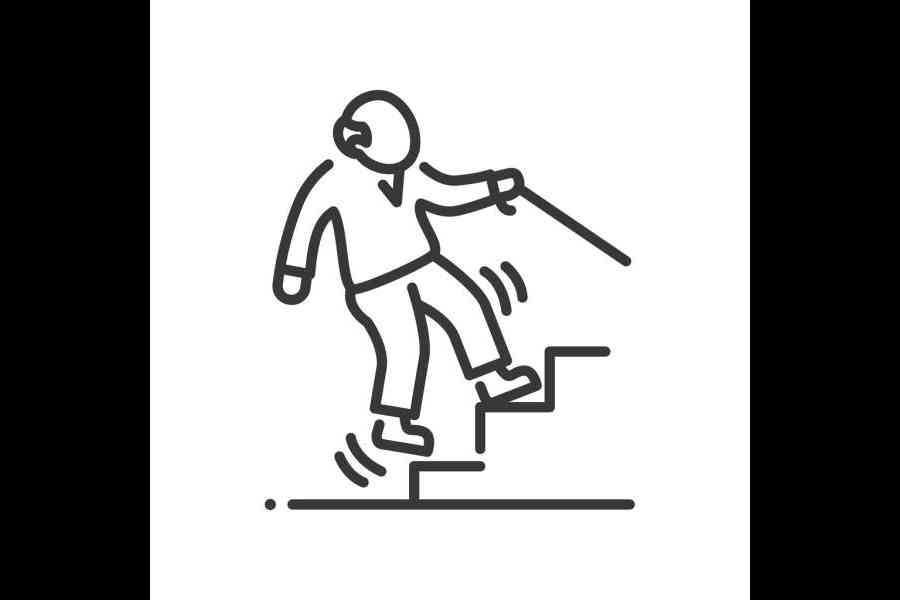Everyone talks about the five senses: sight, smell, hearing, touch and taste. However, there is another important sense — balance — which many people are generally unaware of. Sometimes, only an attack of giddiness or a fall without stumbling over an obstacle reminds people just how important a sense of balance is. Loss of balance may occur suddenly and unexpectedly while leaning over or bending.
Balance depends on several factors: the brain, large muscles in the body, the inner ear, eyesight and sensors on the soles of the feet.
Our sense of balance, which is the ability to quickly correct our position if we trip, remains strong until about the age of 20. This is why children don’t usually fall, even when spinning around.
Certain medications, like anti- anxiety drugs, antidepressants, pain relievers, antihistamines and some blood pressure medications, can affect balance. Even moderate alcohol consumption can result in loss of balance and coordination, and slower reaction time to obstacles or dangers.
Balance is often tested by having a person stand on one leg. This is how one is expected to fare depending on age bracket:
n 20 to 49 years: 24 to 28 seconds
n 50 to 59 years: 21 seconds
n 60 to 69 years: 10 seconds
n 70 to 79 years: 4 seconds
n 80 years and older: most cannot do it at all.
However, 20 per cent of older adults tested could only hold the pose for 10 seconds or less. Inability to balance could lead to falls and a twofold risk of death from various causes within 10 years of detection of the problem.
If someone complains of frequent loss of balance, tests can be done to replicate symptoms. For example, suddenly standing and sitting or standing after lying down while blood pressure changes are monitored. An ECG and echocardiogram might be done to check for abnormal heart rhythms. Vision tests, CT or MRI scans of the head, and non-invasive tests for narrowed or blocked arteries to the brain may also be performed. The ears and eyes need to be evaluated as well. If no physical explanation is found, the patient may need to be assessed for psychological conditions such as depression.
Regardless of the diagnosis, maintaining and improving balance is crucial. Cardiovascular exercises like walking or running on flat ground won’t necessarily improve balance, which requires targeted exercises. Exercises to improve balance should be done at least three to four times a week, and they don’t require special equipment or footwear.
Balance training involves exercises that strengthen the muscles that help you stay upright, such as muscles in the legs and core. This improves stability and can help prevent falls. Some examples of balance training include:
n Standing on one leg with the other knee bent. Stand near a support in case your balance falters. Then switch legs. Once you’re confident, try closing one eye (but not both).
n Walking on a flat surface for about 10 metres, placing one foot directly in front of the other (heel to toe). Then repeat backward.
n Walking sideways.
n Sitting down and getting up from a chair several times without using your arms for support.
n Doing heel raises.
n Performing squats with your back supported by a wall.
n Holding on to a wall or table and lifting each leg sideways and then backwards.
Yoga also offers exercises for balance — such as the tree pose — and includes eye and ear exercises that help with stability.
Once your balance improves, daily activities like getting out of a car, bending down to pick something up, fixing your sandal strap or turning suddenly will no longer leave you dizzy or at risk of falling. Life will become much easier and safer.
Don’t wait for disaster to strike. Start preventive balance exercises as soon as possible.
The writer has a family practice at Vellore and is the author of Staying Healthy in Modern India. If you have any questions on health issues please write to yourhealthgm@yahoo.co.in










